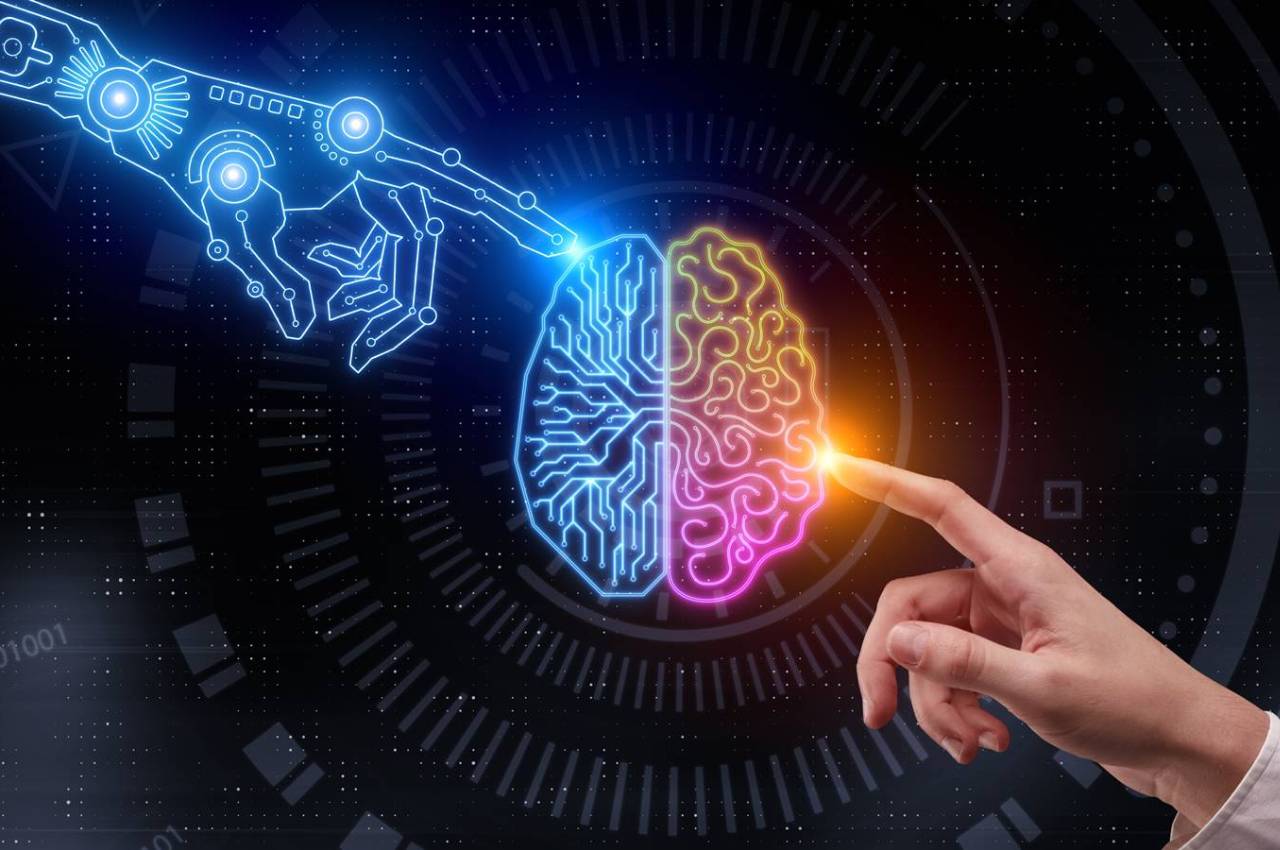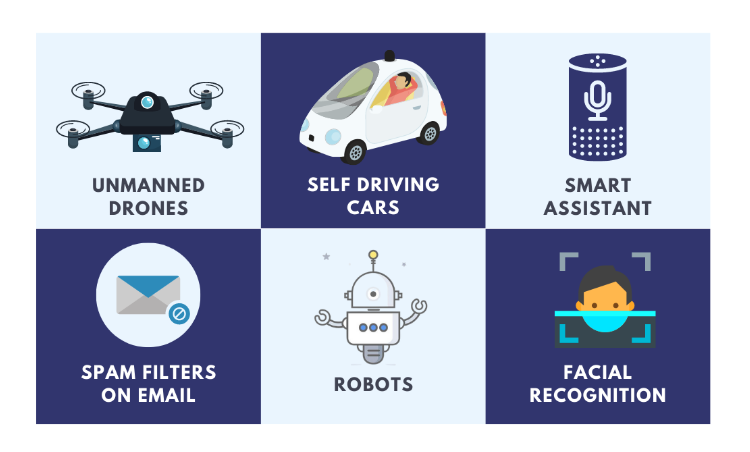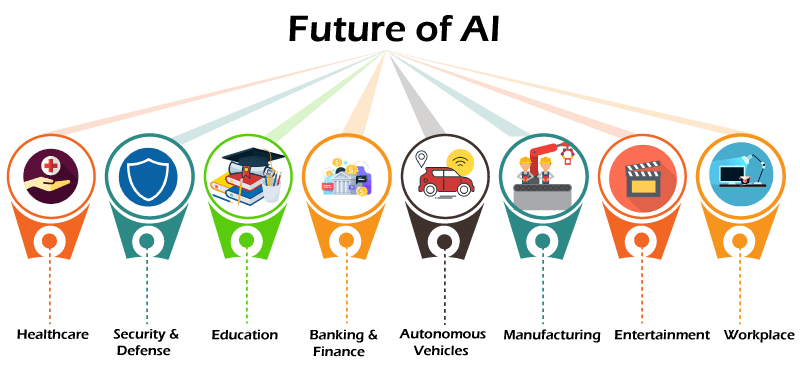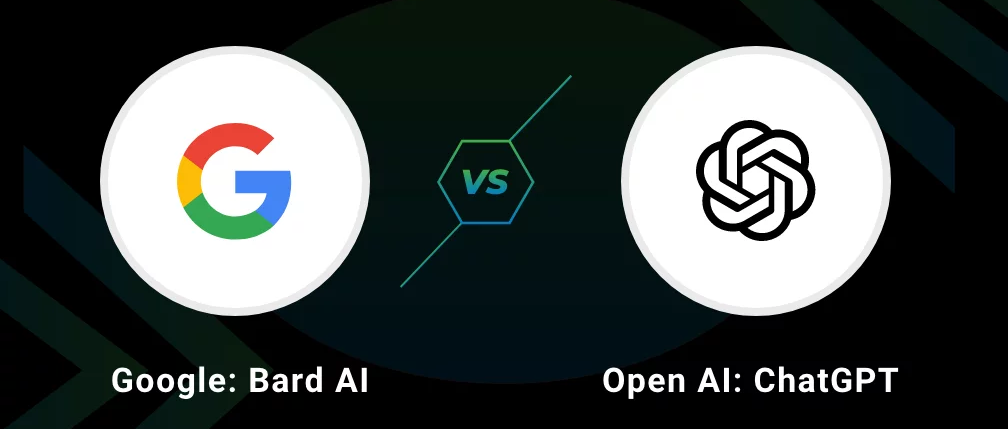"AI: Friend or Foe?"
 Shreya Amritkar
Shreya Amritkar
Source: news.microsoft.com/future-economy-with-AI
"The rise of powerful AI will be either the best or the worst thing ever to happen to humanity. We do not yet know which."[1]
- Stephen Hawking
What is AI?
Just look around and ask yourself if there exists a domain where AI is not present!
AI is about creating machines that can "think" and "learn" like humans, with the ability to adapt to new situations and make complex decisions. Some of the applications of AI include self-driving cars, virtual assistants, chatbots, image and speech recognition, and even game-playing bots. With the rapid advancements in AI technology, it is no wonder that AI is becoming a game-changer in various industries, from healthcare to finance, from education to entertainment.[2]
Let us dive deeper and understand the pros and cons of this booming technology.
General Applications of AI [3]

Source: https://radical.fm/best-applications-of-artificial-intelligence-in-digital-marketing/
Advanced web search engines (e.g., Google Search)
Recommendation systems (used by YouTube, Amazon, and Netflix), understanding human speech (such as Siri and Alexa)
Self-driving cars (e.g., Waymo)
Generative or creative tools (ChatGPT and AI art)
Game systems (such as chess and Go).
Positive Impact of AI
How has AI made our lives convenient?
The benefits of AI cannot be denied. AI has the potential to transform industries and make our lives easier and more convenient saving us time and effort. One of the most notable examples of AI's positive impact is the development of virtual assistants like Siri and Alexa. These assistants can perform tasks such as setting reminders, making phone calls, and answering questions, without the need for human intervention.[4]
AI in Healthcare
AI is also being used to revolutionize the healthcare industry. For example, AI algorithms can analyze medical images and identify potential health issues that may have been missed by human doctors. AI-powered chatbots are also being used to provide patients with personalized advice and support, reducing the burden on healthcare workers and making healthcare more accessible to all.[5]
AI in Education
AI has already made significant inroads in education, with many schools and universities adopting AI-powered tools and applications to improve student outcomes. AI-powered educational tools can also provide immersive and interactive learning experiences, such as virtual and augmented reality simulations, that allow students to explore complex concepts in a hands-on way. Another area where AI can be useful in education is in automating administrative tasks, such as grading and record-keeping. AI can also help to identify at-risk students who may need additional support, allowing teachers to intervene early and provide the necessary assistance.[6]

Source: https://www.javatpoint.com/future-of-artificial-intelligence
Negative Impact of AI
Is AI taking over jobs? [7]
The fear that AI will take over jobs is a common concern among many people, and it is understandable. As AI technology continues to advance, there is no doubt that some jobs will be automated, and some workers may find themselves displaced. It is true that some jobs, particularly those that involve routine or repetitive tasks, are at risk of being automated. For example, jobs in manufacturing, data entry, and customer service are already being impacted by AI-powered automation. However, it is important to recognize that AI is not simply a tool for replacing human workers.
CHATGPT [8]

Source: https://iq.opengenus.org/chatgpt-vs-google-bart/
CHATGPT is an implementation of AI and natural language processing technology, allowing for human-like interaction and improved information access and retrieval.
AI-powered technologies like CHATGPT can help to solve this problem by analyzing vast amounts of data and providing relevant information in a timely manner. In addition, these are being used to automate repetitive and mundane tasks, freeing up time for more complex and valuable work. However, it is important to note that there are also potential negative impacts of AI technologies like CHATGPT. For example, there are concerns about the potential for bias in machine learning algorithms, which could lead to discrimination and inequality.
Ethical Implications of AI [9]
The ethical implications of AI are complex and multifaceted. As AI becomes more advanced, it has the potential to make decisions that can have a significant impact on people's lives. It is essential to ensure that these decisions are fair and just.
One of the main ethical concerns with AI is the lack of transparency and accountability. Many AI algorithms are complex and difficult to understand, making it challenging to determine how they are making decisions. This lack of transparency can lead to mistrust and can make it difficult to hold AI accountable for its actions.
Conclusion [10]
Overall, while there is no doubt that AI will impact the job market, it is important to view AI as an opportunity rather than a threat. By embracing the potential of AI, we can create new industries, new jobs, and new ways of working that leverage the unique strengths of both humans and machines.
References:
Subscribe to my newsletter
Read articles from Shreya Amritkar directly inside your inbox. Subscribe to the newsletter, and don't miss out.
Written by
